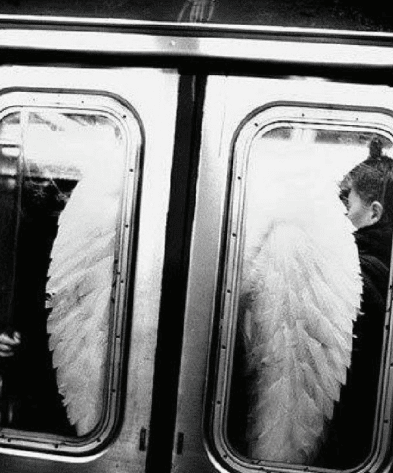Editorial The Lifestyle Institute | Author: María José Núñez | January 2023
‘Never Stop Learning’ is The Lifestyle Institute’s slogan and we would like to explain the five main reasons why.
We love to explain each and every one of our foundations and fundamental ideas, as well as everything to do with the world of Lifestyle Management and the figure of the Personal Angel. We have already analysed what it means to be a private personal assistant, its meaning throughout history, the skills required to become a PA, what being elite means, what luxury is and many more concepts that, if you haven’t already discovered them, we invite you to do so through our editorials and those of Alberta La Grup.
(Sigue en español)
“Learning never exhausts the mind” (Leonardo da Vinci)
Therefore, this is the hashtag that goes with us everywhere: in each of our publications, presentations, media appearances and, of course, in our classes on the Postgraduate course. What connotations does it have? Let’s take a look! #NeverStopLearning:
- We don’t need to go into detail what it means to never stop learning… Part of our main objectives on the Postgraduate course is the idea that we are in a perpetual state of learning, both ourselves (the lecturers) and you (the student or reader of this article).
- Constant learning because when you train to become a Personal Angel, you are becoming part of a profession in which you are always going to have reinvent and update yourself. If you have already been working for many years in another industry and have decided to open your horizons and try a new career, you will be constantly learning new concepts.
- Why would you ever stop learning? Simply put, nobody said we should stop, however many years pass us by. The motivation to learn and continue studying is always there. And if, on top of that, it redirects us towards other professional pathways, even better!
- Back to the idea of having more than one vocation. Why are we told from the day we are born that we have one mission in life? We could have one, two or many more vocations.
- Finally, #NeverStopLearning goes hand-in-hand with our other slogan ‘Let’s fly!’ because if you never stop learning, you will be totally prepared to open your wings, take off and, of course, fly high! This is one important thing about the Personal Angel profession… As the painter Frida Khalo once said “Feet, what do I need you for when I have wings to fly?”
Copyright ©by Alberta La Grup
If you wish to re-print this article or photos, that’s fine. Just include the biography at the end of the article. Thank you!
Translation: Emily Benton
Photo: Pixabay
#NeverStopLearning: nuestro hashtag de cabecera
Autora: María José Núñez | Barcelona, Enero 2023
Que nunca dejes de aprender es nuestro lema en The Lifestyle Institute. Y queremos explicarte las razones… Nuestras cinco buenas razones.
Nos encanta explicarte el por qué de cada una de nuestras premisas y fundamentos, y en definitiva, de todo lo que envuelve el universo del Lifestyle Management y de la figura del Personal Angel. Hemos llegado a la conclusión de que hemos analizado lo que significa ser asistente personal privado, su significado a lo largo de la historia, las aptitudes que hay que tener para convertirse en un PA, qué se palpa en la élite, cómo es el lujo y un largo etcétera de conceptos que, si no los has descubierto ya, te invitamos a que lo hagas a través de nuestros editoriales y los de Alberta la Grup.
“El aprendizaje nunca agota la mente” (Leonardo da Vinci)
Asimismo, es el hashtag que siempre nos acompaña en cada una de nuestras publicaciones, presentaciones, apariciones en medios y, por supuesto, en nuestras clases del Postgrado, ¿qué connotaciones tiene? ¡Vamos allá! #NeverStopLearning:
- No hace falta desgranar lo que significa que nunca dejes de aprender… Parte de uno de los objetivos principales de nuestro Postgrado: que estamos en un aprendizaje continuo, tanto nosotros (los lecturers) como tú (el alumno o el lector de este editorial).
- Aprendizaje constante porque al formarte como Personal Angel estás apostando por una profesión con la que siempre vas a tener que reciclarte y actualizarte. Y si ya llevas años trabajando en otros ámbitos pero has decidido abrir horizontes y probar con esto, también estarás en un ‘non stop’ de cultivarte.
- Parar de aprender. ¿Por qué? Sencillamente, nadie dijo que había que dejar de hacerlo, por mucho que pasen los años. Las ganas de prepararse y seguir estudiando siempre están ahí. Y si encima nos encauzan hacia otros caminos profesionales, mejor aún, ¿no es así?
- Y volvemos a la idea de tener más de una vocación. ¿Por qué nos enseñaron que nacíamos con una misión en la vida? Podemos tener una, dos o muchas más vocaciones.
- Y, por último, nuestro #NeverStopLearning tiene que ir ligado a nuestro ‘Let’s fly!’ porque si nunca dejas de aprender, estarás absolutamente preparado para que tus alas comiencen a alzar el vuelo, y por supuesto, ¡a volar alto! Es lo que tiene la profesión de Personal Angel… Pues como ya dijo la pintora Frida Khalo… “Pies, ¿para qué los quiero si tengo alas para volar?”
Todos los derechos reservados ©by Alberta La Grup
Si quieres publicar este artículo o fotografía, está bien. Sólo debes incluir la biografía, autor y esta información sobre los derechos. Gracias.
Traducción: Emily Benton
Photo: Pixabay




